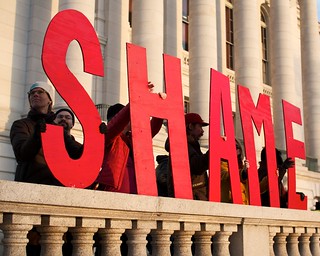 |
| An Amazing Film! |
From what the Critical Model Packet says about shame theory, it seems that it could work pretty good. In the movie, once T'challa learns what happened to his uncle, he feels shame because of what his father did to him. Also, it looks like Killmonger is totally motivated by shame from many sources (father's death, history of slavery, Wakanda's failure to help end racism), but his anger makes him want to rule the world. I can see already that this is going to take a lot of thought, once I know what to do next.
A few relevant articles:
‘Black Panther’ is on the hunt for a best picture Oscar, no matter what happens with the ‘popular film’ prize
https://www.postbulletin.com/entertainment/black-panther-is-on-the-hunt-for-a-best-picture/article_e607bdfc-543f-5eb7-8348-df1de330877f.htmlBlack Men: Stigma, Status and Expectations https://www.nytimes.com/roomfordebate/2012/03/12/young-black-and-male-in-america/black-men-stigma-status-and-expectations
Slaves of History




























